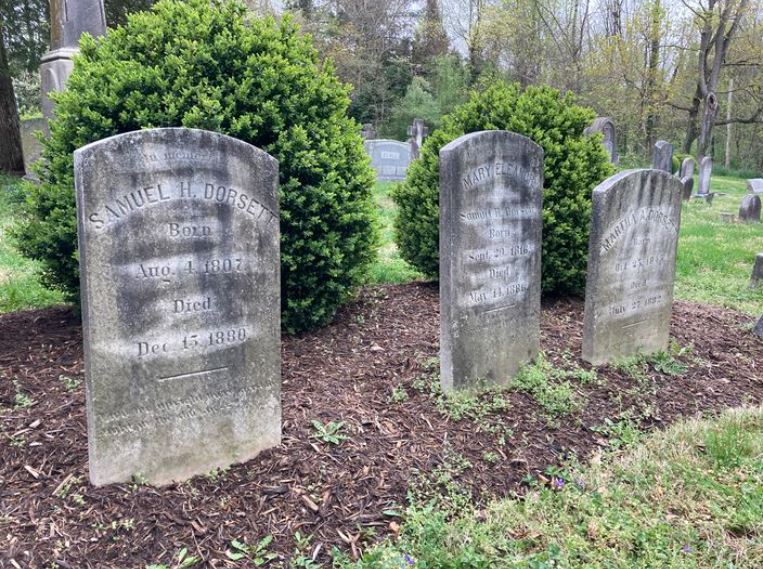A person's good intentions alone do not qualify them to clean historic gravestones. A recent newspaper article reporting damage done to Civil War-era gravestones in Maryland is yet another example of someone who thought it was permissible to alter grave markers to better read the inscriptions obscured by years of growth and grime (I'm giving the unknown person the benefit of a doubt that their intentions were not malicious). Almost weekly I learn of another "good Samaritan" who is inspired to clean gravestones in a cemetery. It is true that proper cleaning can help to preserve stone and that many gravestones stand neglected in cemeteries all over the US. However, before anyone attempts a cleaning project in a cemetery, it is essential to, 1) research proper historic stone cleaning techniques (such as on websites like NCPTT), 2) share your plan for cleaning gravestones with a professional to get their feedback, and 3) obtain permission from the governing body of that cemetery. Without proper training and planning, a person--no matter how big their heart--risks doing more harm than good to that old gravestone they wish to preserve.
|
[Above, 19th century gravestones were damaged by someone using an abrasive cleaning technique in a Maryland cemetery in spring 2021. Image courtesy the Baltimore Sun]
A person's good intentions alone do not qualify them to clean historic gravestones. A recent newspaper article reporting damage done to Civil War-era gravestones in Maryland is yet another example of someone who thought it was permissible to alter grave markers to better read the inscriptions obscured by years of growth and grime (I'm giving the unknown person the benefit of a doubt that their intentions were not malicious). Almost weekly I learn of another "good Samaritan" who is inspired to clean gravestones in a cemetery. It is true that proper cleaning can help to preserve stone and that many gravestones stand neglected in cemeteries all over the US. However, before anyone attempts a cleaning project in a cemetery, it is essential to, 1) research proper historic stone cleaning techniques (such as on websites like NCPTT), 2) share your plan for cleaning gravestones with a professional to get their feedback, and 3) obtain permission from the governing body of that cemetery. Without proper training and planning, a person--no matter how big their heart--risks doing more harm than good to that old gravestone they wish to preserve.
1 Comment
5/30/2023 02:32:00 pm
I appreciated you pointing out that we must research proper historic stone cleaning methods. My friend wants to have headstone monuments. I should advise him to turn to a firm that has created monuments that celebrate lives.
Reply
Leave a Reply. |
AuthorJarrod Roll...museum curator by training, preservation educator by passion. Director of the Monroe County Local History Room & Museum, Sparta, WI. Owner of Save Your Stones Gravestone Restoration Services. Maker of the Gravestone Cleaning Kit. Archives
April 2023
Categories |

 RSS Feed
RSS Feed
